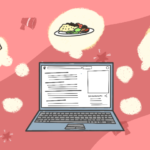Halal Restaurant
With the growing number of Muslim travellers in the world, many restaurants are trying to entice those travellers to dine in their restaurants by offering halal food. Anyone can serve Halal food, including non-muslim as long as it follows the Islamic guidelines. So, are you operating a halal restaurant?
So what is halal food? Halal is an arabic word that means “lawful” or “permissible”. Halal food simply means food that is permissible to be eaten by Muslim.
What kind of food that is permissible for Muslim to eat?

Based on the holy Quran, there are a few restrictions on what Muslims can’t eat:
- Pork
- Blood
- Any animal that is not slaughtered in the name of Allah
- Alcohol and other elements that can intoxicate the consumers
So halal food is food that doesn’t violate the restrictions above.
Most non-muslims know that muslims can’t eat pork but very few people understand that halal is more than pork-free and alcohol-free. With the exception of seafood, any animal that is not slaughtered in the name of Allah is not halal.
Slaughtering
Chickens, cows, lambs, or turkeys can be non-halal when the slaughtering did not follow according to the Islamic guidelines. The Islamic guidelines require the use of very sharp knives to slaughter the animals. This is done by making incisions at the front of their throats.
The incisions should be deep and cut into the carotid artery, wind pipe and jugular veins to release all the blood from the body. The meat is permissible to consume after all the blood drains from the body.
When slaughtering an animal, the head of the animal has to align to face the Qiblah and the butcher should utter a prayer “in the name of Allah”.
With the growing demand of halal meat worldwide, more butchers are training to obtain halal certificates. Halal restaurants should obtain their meat supplies only from certified Halal butcheries.

Apart from getting the meat from Halal suppliers, food preparation is also important in determining whether or not a dish can be classified as halal.
Utensils
Any kitchen utensils like knives, spoons, baking tray or plates that have been previously used to prepare non-halal food should not be used. The utensils should be clean properly according to the Islamic guidelines in order for it to be usable.
Chefs should also refrain from using alcohol (wine, sherry, lager, etc) in their sauces.
While people may argue that most of the alcohol will evaporate once the sauces are flambéed or simmered down. However, a lot of Muslims will not eat anything that has anything to do with alcohol, simple because they are being more cautious. Restaurant owners should respect that.
A lot of restaurant owners are not aware that it is illegal to put a sign “Halal” in the restaurant. Even if the owner is a muslim and all their food is suppliers are halal certified.
A restaurant owned by muslim is not automatically a halal restaurant. Regardless of the religions or races, Jakim will only issue halal certification once the restaurant complies with the regulations set by Jakim.
To know more about how to open a restaurant in Malaysia, visit www.startmyrestaurant.com.my
—
About the author:
Elly Suliana is an accountant who has been involved in opening, operating and managing few restaurants in Kuala Lumpur for the past 10 years. Although her technical background is in Accounting and Management (Bachelor degree in Accountancy from San Diego States University – USA and an MBA from University of San Diego – USA), her passion for food drove her to be in the F&B industry. She loves food and everything associated with it.
She is the author of ebook “How to Open a Restaurant in 8 Weeks”. Her step-by- step guide has helped many Malaysians and foreigners opened their restaurants in Malaysia. Currently she is running an accounting firm, providing financial services and consultancies to restaurants in Kuala Lumpur.
 Slurp!
Slurp!




